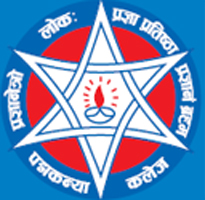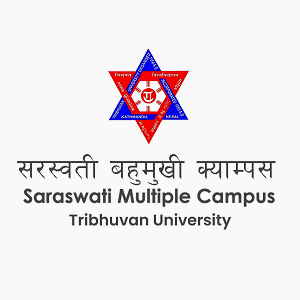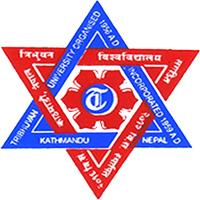Overview
MA in Rural Development at Tri-Chandra Campus, Ghantaghar, Kathmandu (affiliated with TU)
The Master of Arts in Rural Development at Tri-Chandra Campus, affiliated with Tribhuvan University (TU), is a specialized program designed to combine students with the knowledge and skills required to overcome the challenges and opportunities in rural development. This interdisciplinary program integrates theoretical concepts with practical applications, focusing on sustainable development, poverty alleviation, and community empowerment. It is designed for individuals seeking to impact rural communities meaningfully through innovative policies and strategies.
Program Duration
The MA in Rural Development program lasts two years and is divided into four semesters. Each semester includes core and elective courses, research training, and filaments. The program culminates in a dissertation or project report, allowing students to apply their learning to real-world rural development issues.
Eligibility Criteria
To be eligible for admission into the MA in Rural Development program at Tri-Chandra Campus, applicants must meet the following requirements:
-
Must have a Bachelor’s degree in any discipline from a recognized university.
-
Obtained minimum CGPA of 2.0 or second division in the undergraduate program.
-
Students with sociology, economics, or development studies backgrounds may have an advantage but are not exclusively required.
Admission Process
-
Application Submission: Fill out the application form at the campus admission office.
-
Entrance Examination: You must appear for Tribhuvan University’s entrance test, which evaluates your knowledge of rural development, social science concepts, and analytical skills.
-
Merit List: Admission is granted based on performance in the entrance test and academic qualifications.
-
Document Verification: Submit required documents, including academic transcripts, citizenship proof, and recommendation letters.
-
Enrollment: Confirm admission by paying the required fees and completing the registration process.
Course Outline
The curriculum offers a balance of theoretical knowledge and practical training. Below is a detailed breakdown of the course structure:
Year 1, Semester 1:
-
Introduction to Rural Development
-
Development Theories and Practices
-
Research Methodology in Social Sciences
-
Practical: Rural Fieldwork
Year 1, Semester 2:
-
Rural Economics
-
Gender and Development
-
Project Planning and Management
-
Practical: Case Studies on Rural Development
Year 2, Semester 3:
-
Sustainable Development and Climate Change
-
Rural Sociology and Anthropology
-
Elective: Agrarian Studies or Community Development
-
Seminar: Current Trends in Rural Development
Year 2, Semester 4:
-
Dissertation/Project Report
-
Policy Analysis and Advocacy
-
Elective: Resource Management or Development Communication
-
Internship/Practical Field Engagement
Subjects Offered
-
Introduction to Rural Development
-
Development Theories and Practices
-
Research Methodology
-
Rural Economics
-
Gender and Development
-
Project Planning and Management
-
Sustainable Development
-
Climate Change and Rural Adaptation
-
Agrarian Studies
-
Community Development
-
Resource Management
-
Development Communication
Program Objectives
-
To provide an in-depth understanding of rural development theories, policies, and practices.
-
To develop research and analytical skills for solving rural development challenges.
-
To equip students with tools for sustainable development, project management, and policy advocacy.
-
To promote a multidisciplinary approach to rural development.
-
To enable students to take leadership roles in community empowerment and development initiatives.
Teaching Methodology
The program combines interactive lectures, case studies, group discussions, and fieldwork. Faculty members integrate modern teaching aids with traditional methods to ensure effective learning. Students engage in hands-on training through internships, rural field visits, and project-based learning, allowing them to apply theoretical concepts in practical settings. Regular workshops and seminars provide exposure to real-world challenges and solutions.
Learning Outcomes
Graduates of the MA in Rural Development program will:
-
Pursue an in-depth understanding of rural development theories and practices.
-
Develop expertise in research methodologies and data analysis.
-
Acquire skills in project planning, management, and evaluation.
-
Address sustainability and climate change issues in rural contexts.
-
Advocate for policies that empower rural communities.
-
Contribute to poverty alleviation and sustainable development initiatives.
Future Scope
The program prepares students for advanced academic pursuits, such as a Ph.D. in Development Studies or related fields. Graduates can specialize in rural sociology, community development, or environmental management. They will be equipped to address emerging challenges in rural development, including climate resilience and resource management.
Career Prospects
Graduates of the MA in Rural Development program can pursue careers in:
-
NGOs and International Development Agencies
-
Government and Policy-Making Bodies
-
Rural Development Banks and Financial Institutions
-
Research and Academic Institutions
-
Corporate Social Responsibility (CSR) Departments
-
Community-Based Organizations
-
Environmental and Resource Management Firms
Scholarship Opportunities
Tri-Chandra Campus offers scholarships for academically outstanding and economically disadvantaged students. Additional scholarships are available for students from marginalized communities and those meeting government or institutional quotas. Interested candidates should inquire during the admission process.
Fee Structure
Tribhuvan University determines the tuition fees for the MA in Rural Development program, which may be subject to periodic revisions. The campus administration office has detailed fee structures.
Extracurricular and Co-Curricular Activities
Students participate in rural development forums, workshops, and community service projects. These activities provide practical exposure, enhance leadership skills, and foster collaboration with peers and professionals in the field.
Real-World Application
The program emphasizes real-world applications through internships, case studies, and community-based projects. Students work on practical issues like rural livelihoods, resource management, and sustainable practices, bridging the gap between theory and practice.
Sustainability and Social Impact
The curriculum integrates sustainability concepts, training students to develop solutions that balance economic growth with environmental preservation. Graduates are equipped to implement projects that promote equity, social justice, and long-term community resilience.
Skill Development
The program focuses on critical skills, including analytical thinking, project management, communication, and leadership. Students also gain proficiency in data analysis, report writing, and stakeholder engagement, preparing them for diverse professional roles.
Global Perspective
Courses on globalization, climate change, and sustainable development provide students with a global outlook on rural development issues. The program prepares graduates to address international challenges and contribute to global initiatives.
Facilities and Support
Tri-Chandra Campus provides well-equipped classrooms, a resourceful library, and access to research journals. Students also benefit from academic counseling, mentorship programs, and career guidance services, which ensure a supportive learning environment.
Why Choose an MA in Rural Development?
This program combines rigorous academics with practical training, preparing students to tackle complex rural development challenges. It offers interdisciplinary insights, hands-on experience, and opportunities for impactful careers in development sectors. The focus on sustainability and community empowerment makes it a standout choice for aspiring development professionals.
Is the MA in Rural Development Right for You?
This program is ideal for students passionate about improving rural livelihoods, addressing social inequalities, and promoting sustainable development. It caters to students with diverse interests and offers a comprehensive education that combines theory, research, and practice.
What is the Future of the MA in Rural Development?
The demand for rural development professionals is increasing as nations prioritize sustainable development and poverty alleviation. Graduates will play critical roles in shaping policies, implementing development projects, and addressing global challenges like climate change and resource management.
How to Improve Your Study of Rural Development Education
To excel in rural development, actively engage in fieldwork, research, and community projects. Build a strong foundation in data analysis and project management. Collaborate with peers and professionals, participate in workshops, and stay updated on global development trends. Cultivate empathy and cultural sensitivity to work effectively with diverse communities.
Conclusion
The MA in Rural Development program at Tri-Chandra Campus provides a holistic education in addressing rural challenges and promoting sustainable development. With its emphasis on interdisciplinary learning, practical applications, and community impact, the program prepares graduates for impactful careers in development sectors. Whether pursuing further studies or professional opportunities, this program equips students with the knowledge and skills to drive positive change in rural communities.
Contact Tri Chandra Multiple Campus's administrative office for detailed information on the MA in Rural Development course, including fees, scholarships, facilities, counseling, eligibility criteria, etc.

















